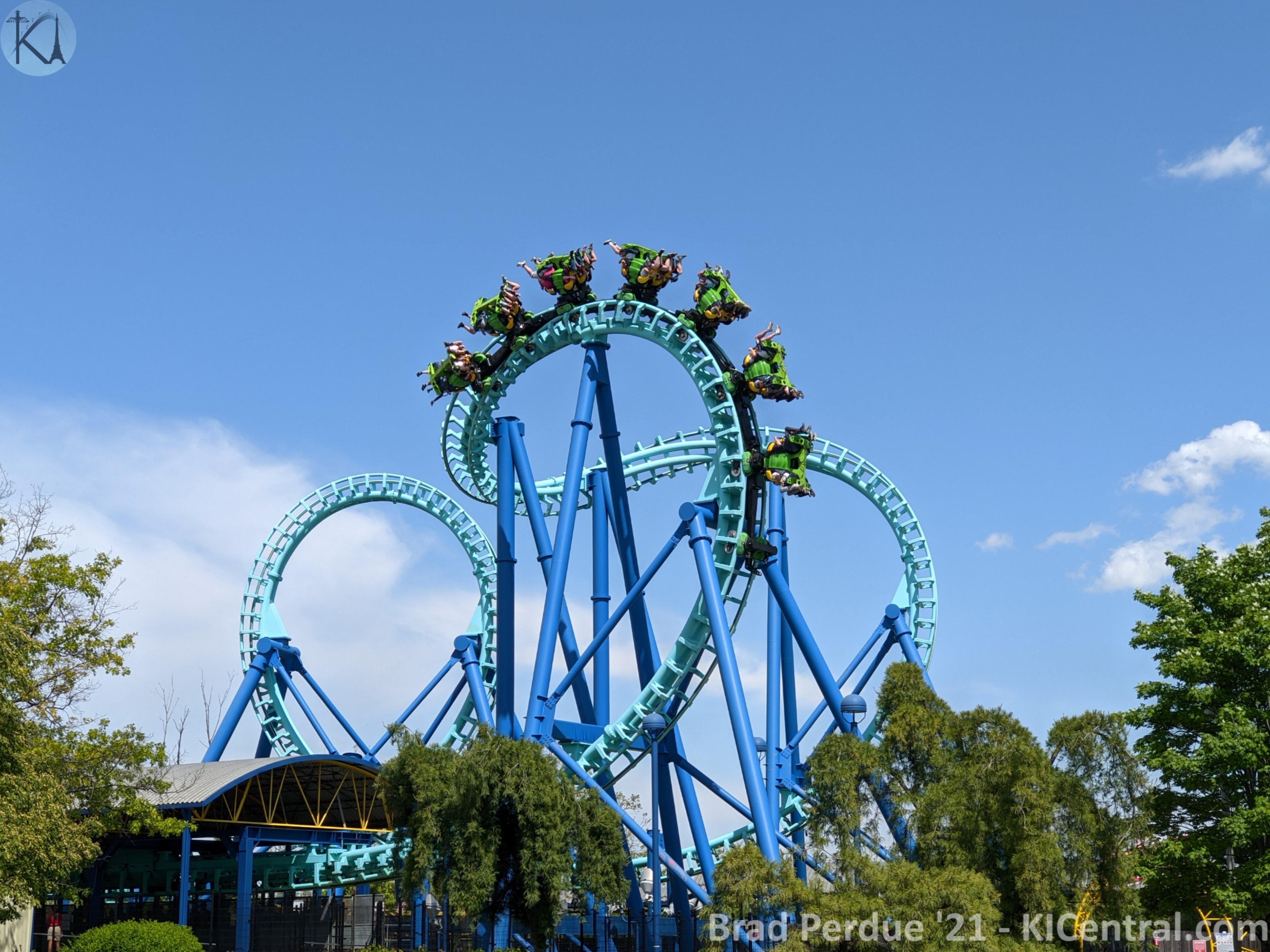-
Posts
725 -
Joined
-
Last visited
-
Days Won
2
KI Guy last won the day on September 8 2023
KI Guy had the most liked content!
Profile Information
-
Gender
Male
Recent Profile Visitors
3,794 profile views
KI Guy's Achievements

KIC Expert (5/13)
2.1k
Reputation
-
Haha, I won't join the "legalese" subset of the forum. I just wanted to point out that Disney would never word the policy "if we catch you faking a disability you are banned for life." That could put pressure on disabled people and their loved ones to go out of their way to display ongoing proof that they actually have one. "Lying about a disability" is more flexible and shifts the spotlight/ culpability if needed. Disney probably paid crazy money to lawyers and mental health professionals to craft perfect wording for the new policy.
-
Unfortunately, if you give some people the possibility to exploit something at the expense of others they'll do it. Third party tour guides were banned from the park last year partly because of their role in encouraging the abuse of this policy. I hope that this change will not cause much of a problem. I'd imagine most of the thoughtless, selfish people who abused this program will know that abuse of the policy will no longer be tolerated and stop for fear of forfeiting hundreds of dollars' worth of tickets/passes and a lifetime ban. I also assume that bans will only come down when the evidence of lying/abuse is undeniable, and the benefit of the doubt will be given if at all possible, in borderline cases for bans. ** @disco2000 Just a distinction here for clarity. I don't believe the thread title is completely accurate. My understanding is that the focus of the bans will be for people who lied about a loved one's disability rather than for individuals who "faked having a disability". Some of those will be one and the same, but I think it is smart of Disney to make the enforcement based on truth vs lying in the program application process rather than making it based on determining whether someone is "faking" a disability or exaggerating its severity.
-
This is right on point. Some here operate under the assumption that the leadership at Cedar Fair care primarily about the health of the company long-term. Ideally of course they would, but many shareholders (of any corporation) are not that patient and are more greedy that that. The temptation to sacrifice the long-term health for short-term gain is constant. Sacrificing tomorrow's goodwill, (or memories), for a half point increase in the stock price here and there is a dreadful strategy for the long-term. What's more the cost cutting and hours cutting we've seen can only be considered because of the goodwill earned over the decades in the customer base. At some point though the shine from good memories and a golden past reputation start to wear off and people start to evaluate the park for what it is now. This can take some time, but it happens to any business that cost-cuts or underwhelms its customers for too long. "I can't wait to go back" becomes "This place is not what it used to be." As @DispatchMaster indicated it's potentially worse than that. Most people are not diehard amusement park fans so dissatisfied customers could instead spend on any other entertainment or non-essential "nice-to-have" product. A huge vulnerability Cedar Fair faces, assuming the premium product remains the focus of their business model for growth, is that they need a large base of standard "volume" customers to increase the perceived value of the premium products (Fast Lane, VIP, etc.). Without this large base of satisfied "volume" customers they have little to no viable premium products. Why pay to cut when the lines are short? Why buy a food plan when the food is sub-par? In other words losing volume customers is a double hit financially. Perhaps unintentionally this model provides a disincentive to go upmarket. Investing in the park means higher costs which means higher prices. Higher prices means fewer guests. Fewer guests mean fewer people see the need to purchase Fast Lane and premium products-- a vicious circle if they get entrapped in that.
-
Compared to profitability they would hardly give a rat's "hat" about blowback from fans. I think that the closing of the rides was a drastic attempt to cut costs to make (what was still called) Coney Island profitable. Whether they saw the writing on the wall the whole time is another thing, but the change would never have been motivated by avoiding media/customer backlash. Think of the crappy motel you see with next to no one at it. They operate because they are profitable, but if any money were to put in the place, it would no longer be profitable, so they run with no improvements until all remaining profit potential is gone and they start to lose money. Then they close. This may have been a case similar to that, or perhaps it's been losing money for many years and these changes didn't reverse that. Once the rides left, the company picnics left and that was a big part of what kept the place around over the last 20 years. Few people want to see or be seen by the boss in a bathing suit.
-
I have fond memories of this show from the night I rode it in 2005. That night there was ice on the tracks and the train was having trouble getting enough traction to make it over the shallow grades of the terrain. After failing to make it through an upward grade in the track the train had to go backwards and then accelerate with more power to build speed to make it over the grade. The best part about this was that the actors, including the main character soldier were being funny ad libbing lines to explain why we were going backwards through the same scenery we had just passed such as "You've gotta go back to move forward I always say."
-

Six Flags and Cedar Fair Merge
KI Guy replied to IndyGuy4KI's topic in Kings Island Central Newsroom
I'm with you, but if the Cedar Point lines are clogged with people who paid $95-200 for daily Fast Lane or $950 for the season long plan they very well might not care. The "integrity" of the Fast Lane product and what it's supposed to get you is not going to matter as much to them as the revenue it can provide. They've essentially set up a tiered ticket system where on even moderately busy days the regular admission is lousy and the Fast Lane entry is decent. I wish the industry could go back to the pre-Fast Lane way of doing things, but I don't think that's going to happen any time soon. -

Six Flags and Cedar Fair Merge
KI Guy replied to IndyGuy4KI's topic in Kings Island Central Newsroom
@DispatchMaster, if you go back and read my post, you'll see that I said "Kings Island is tapped out relative to large Six Flags parks." My point was that there is a whole lot more potential for large investments (to increase revenue) at the poorly utilized Six Flags parks than Kings Island. I do think there is some valid criticism of the cheap gold pass strategy, but I wonder if the thought process was to get everyone at all price points. The more people buying the cheap gold passes (i.e. attendance) the more attractive Fast Lane becomes. Whether a more expensive gold pass would net more revenue is an unresolved question at the moment. And I am not criticizing Cedar Fair's strategy with (small parks like) Michigan's Adventure from a business standpoint; I understand what they're doing. I'm saying that for Michigan's Adventure fans it's hard to believe Cedar Fair has invested in the park like what may have occurred had it stayed under private ownership. This is always the case with corporations and for good reasons. Yes, in other words "tapped out" relative to a Carowinds or a Kings Island. A new install is not as correlated with revenue growth at Cedar Point as it would be Carowinds. Investment goes where they believe there is potential for the largest return on investment. I can see this same strategy taken up with the newly added large Six Flags parks. -

Six Flags and Cedar Fair Merge
KI Guy replied to IndyGuy4KI's topic in Kings Island Central Newsroom
For Kings Island in regards to investments I see no reason for optimism regarding this deal: Kings Island is "tapped out" relative to the large Six Flags parks. The New Six Flags & Cedar Fair combo will stress revenue growth where there's potential. There's plenty of room to grow Great Adventure, Great America, Magic Mountain, and Fiesta Texas, and Over Texas. Cedar Point and Kings Island have plateued on revenue except for add-on products like Fast Lane and Meal Plans. The Paramount Park purchase was disastrous for the likes of Dorney, Valleyfair, and Michigan's Adventure. Meanwhile "the new kids on the block" Kings Island, Carowinds, and Canda's Wonderland were showered with new coasters. Even Cedar Point slowed down a little on new attractions compared to the pre-Paramount era. I'm less concerned about aspects other than investments: There's no reason Kings Island's high level of operations performance can't be maintained. Having been to two of the top-tier Six Flags parks, I can say that the good ones are a lot better than a lot of enthusiast circles give them credit for and the "bones" of these parks are just as good as the best Cedar Fair parks. Regarding Six Flags reputation, regular (non-enthusiast) people don't think of Six Flags as low quality. They are just a recognizable name in theme parks. -
Better yet, they could transplant existing large trees from the undeveloped periphery to the midways. Even at a cost of $15,000 per tree that would be a mere $1.5 million for 100 large trees.
-
Correct. Being privately owned they can also do more things they believe to be good for the park without always having to prove that the change will directly result in quick money to board members. Everything in a corporation has to be sold to a committee and picked at by cost-cutters. Vision and originality can be crushed in the name of short-term profit, risk aversion, and due to long approval chains of executives. As an example, can you ever imagine the current Cedar Fair building anything like the Voyage at Holiday World? If even built, it would likely be 2,000 feet shorter and 40 ft less tall. There would be no underground tunnels or 90 degree turns and no interactive queue line. All those cool things couldn't be justified if only thinking strictly about a theoretical short-term return on investment. Another example... could you ever expect a $30 million dark ride like the new Fire in the Hole (Silver Dollar City) at a Cedar Fair park? No way would that ever happen. They'd opt for something like a $15 million version of Wonder Mountain's Guardian (Canada's Wonderland). With a well-run private park there is a willingness to sacrifice some expected short-term return on investment for intangible goodwill and positive reaction from guests. Ultimately, this strategy will net money just as a more tangible short-term investment, it's just hard to show it on paper. If you don't have to constantly speak to a board, then you have more freedom to make these kinds of decisions.
-

Discussing Land and Space in and around Vortex
KI Guy replied to Klabergian Empire's topic in Kings Island
I like it! To keep themed areas in place, I'd put the entrance to the left of the Rivertown LaRosa's. That would leave enough room for a new flat ride at the end of the Coney Mall midway near where The Vortex station was. For those wanting to give Coney Mall more love, there will be plenty of room for that when they get rid of Backlot. I'd like an RMC, or if not that, maybe a larger 140-150 ft GCI twister wood coaster. Either one would have a Shooting Star/Retro 1920's theme and would be painted white. -
It represents a great value because of the efforts they put in over the last 15 years. If they had invested in those 15 years as they've done over the last 3 years it would not be such a great value. All past evidence of major amusement parks says (reasonable) investment means profit. If that's no longer the case, then either something has fundamentally changed, or every operator of major parks has been wrong for the last 50 years! Amusement parks are like hotels you either invest or go down market. You cannot coast for the long-term and stay what you were. There are other options for people's entertainment and for a lot of non-superfans that doesn't have to be an amusement park.
-
@disco2000 But where would the park be without those investments from the last 10-15 years? The top tier ride list might be: Beast Vortex (assuming they invested enough to keep it) Firehawk (same) Flight of Fear Racer Bat Adventure Express. Invertigo Can you truly say that that park would not be considerably less desirable (demand lower prices) due to staleness of what they offer? If you want a real-world case study of letting a park go stagnant look at Great Adventure --very little investment and a park largely coasting on what they built from the 90's until 2006ish. A great park don't get me wrong, but a park that is showing its age and is down in attendance. They are just now starting to invest again post-pandemic although relatively modestly. My point is that you have to pay to play unless you're changing what the park is or who they market to.
-
Kings Island is a mature theme park in a mature market. Despite what Cedar Fair might tell the media, investment they've done over the last 15 years has largely been for maintaining revenue/attendance rather than growing it. The parks that go ten years without large investments have largely resigned themselves (or have been determined by corporate) to be mid-tier or lower tier parks with steady but more modest revenue/attendance. Additionally, the long-term damage from lack of investment could be significant. Every ride except maybe wooden coasters would be 10 years closer to end of service. Corporate just can't hit pause on investment and not expect to have to make it up later, that is unless they are only thinking in the short term (imagine that!) or have a more modest vision for the future of the park. When a park gets this large and frankly old, you have to consistently make major investments every 3-5 years with minor investments in-between just to maintain the status quo. It was different in the Paramount days when the oldest major rides were 25-30 years old. Now that's Flight of Fear rather than The Racer. And that's just rides, you can't forget infrastructure ages like everything else.



.thumb.png.8e7f1090cc8ce08ec0aa4a9c54cc20be.png)



